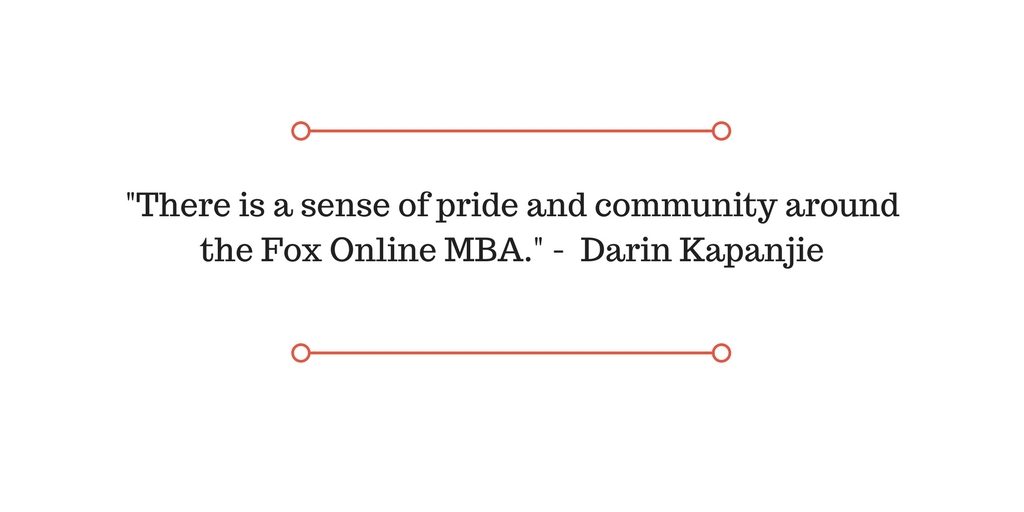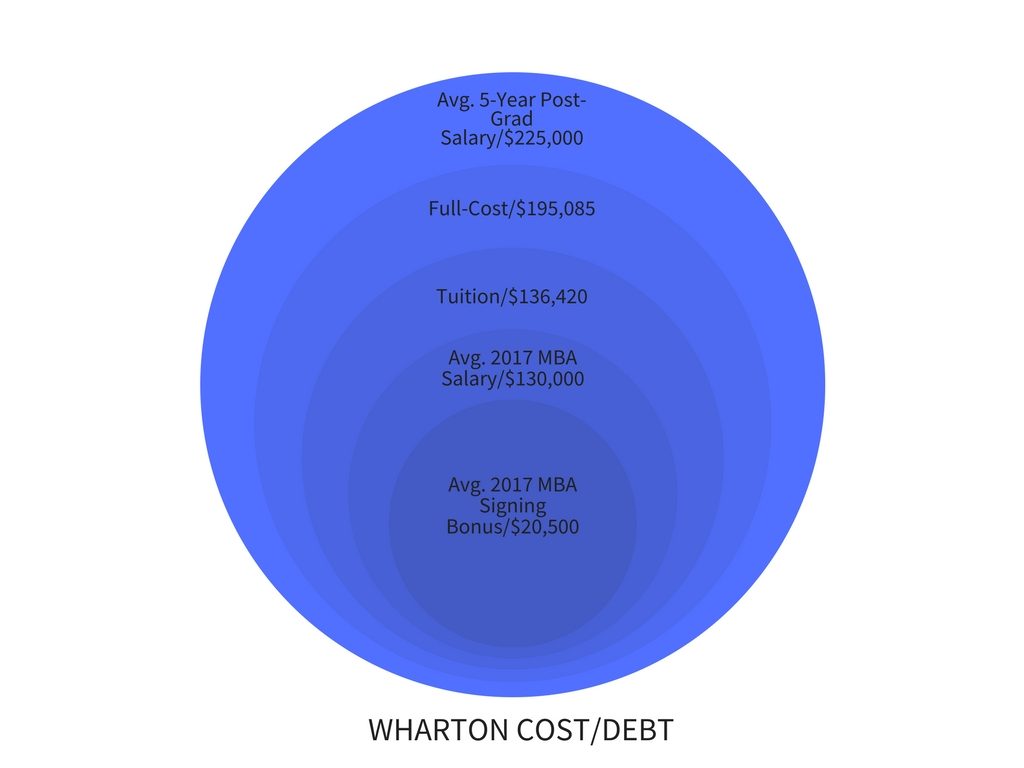What They’re Saying: Business Schools Talk About Cambridge Analytica

Less than a week after Christopher Wylie, the whistle-blower in the ongoing Cambridge Analytica controversy, helped reveal the “dirty tricks” the data mining firm used to help swing elections in North America, Europe, and Africa—including the 2016 U.S. general election—business schools are reacting to the dynamic story.
In short, UK television outlet Channel 4 News filmed several Cambridge Analytica members in an undercover operation, in which they revealed numerous strategies, including: soliciting fake bribes, hiring prostitutes to seduce potential candidates in elections, and more. Company chief executive Alexander Nix was also filmed in the video, which you can watch here, boasted the company’s outreach methods on social media, saying: “It sounds a dreadful thing to say, but these are things that don’t necessarily need to be true as long as they’re believed.”
Another member of the Cambridge Analytica team also argued that they constructed President Donald Trump’s popular “crooked Hillary” campaign slogan from 2016.
Further, the controversy revealed how the company pilfered upwards of “50 million” Facebook profiles, most of which came without consent. Facebook and its founder Mark Zuckerberg played silent on the ongoing story up until March 21, plainly saying in a CNN interview “I’m really sorry that this happened.”
“Aleksandr Kogan, the data scientist who passed along data to SCL Group and its affiliate Cambridge Analytica, built a Facebook app that drew data from users and their friends in 2013. He was allowed access to a broad range of data at the time.
Though Kogan’s data was properly obtained, he breached Facebook’s policy when he shared that information with a third party, Facebook has said. When Facebook learned about the information being shared, it asked Cambridge Analytica to destroy the data. Cambridge said it had.”
Wylie notes that Cambridge Analytica probably never destroyed that data, inevitably leading towards the company’s involvement in the 2016 election. Several of the nation’s most prominent business schools talked about the story on Twitter, which you can read below.
André Spicer, Professor of Organisational Behaviour, on Cambridge Analytica and the possibility of tech companies being forced to expand regulations on privacy and social responsibility.
Read André’s comments: https://t.co/O5IAlUTD5t#cambridgeanalytica#cassbusinessschoolpic.twitter.com/GWv95RUIMc
— Cass Business School (@cassbusiness) March 21, 2018
“The really big issue is if regulators start questioning the business model of tech firms. Currently, consumers give away their data in exchange for free services, but what if regulators start putting a price on people’s data?” –
Cass Business Professor André Spicer
Q&A with @cyberlawclinic‘s @vivekdotca about Facebook and Cambridge Analytica, U.S. privacy protections, and the regulation of the tech industry https://t.co/LPKwwSKSXw
— Harvard University (@Harvard) March 22, 2018
The head of the European Parliament announced on Monday that the EU will investigate whether the data of more than 50 million Facebook users were misused when it was accessed by Cambridge Analytica! https://t.co/q946Hed417
— FOX MBA & MS (@FoxMBA) March 22, 2018
Cambridge Analytica said it’s suspending its CEO immediately and is launching an independent investigation into allegations it misused data on millions of Facebook users. https://t.co/EKeXiuHeQF
— MIT Tech Review (@techreview) March 21, 2018
So, What is a Strategy MBA and Where Can You Find One?

For those who don’t have a natural knack for strategic thinking, the ability to analyze effectively and make logical decisions can often seem like the kind of skill that just can’t be taught. Luckily, most business schools disagree.
Not only is strategic thinking a skill that can be studied and improved, but an advanced education in this field can lead to a wide array of careers, often incredibly lucrative ones. After all, the ability to make strategic decisions can lead to success in all aspects of business and across numerous industries- that might be why those who earn MBAs in Strategic Management are entrepreneurs, COOs, Department Supervisors, Business Analysts, and are found at any number of high-level management positions.
Whether you are born with the skill or not, pursuing a Strategy MBA is the perfect way to set yourself up for a versatile career in strategic management.
What is a Strategic Manager?
In an ever-changing and often tumultuous business world, an organization’s strategic planner can be a crucial part of their growth and continued success. A career in strategic management or planning will involve keeping an organization on course through the collection, analysis, and organization of information pertinent to the company’s profitability. This may include tracking industry trends, keeping an eye on external business competition or threats, identifying opportunities and creating action plans for a company based on strategic problem solving.
Strategy jobs typically deal in the “big picture” of the company, and are a key part of both shaping and supporting a company’s overall vision and values. The role is a desirable one within a company, as it provides direct access to senior managers and frequently leads to higher level leadership positions.
Strategy jobs require a candidate to use skills from a variety of disciplines, such as finance and marketing. Since these positions are often highly competitive and require candidates to demonstrate a high level of business acumen, earning an advanced degree in strategy is one of the best ways to prove you have the unique combination of skills and drive required for this often demanding—but incredibly rewarding—career.
What Is a Strategy MBA?
Given the breadth of skills required to be a successful Strategic Manager for a company, it’s easy to see why one would want an advanced degree in the field. An MBA specialization in Strategic Management is designed to provide students with a deep grounding within the logic of competitive advantage, focusing on both a broad understanding of business competition as well as a more nuanced training in analysis and decision making.
Offered at some of the top business schools throughout the globe, a Strategy MBA will help set future business leaders on course for careers in strategy consulting, general management, entrepreneurship, and a number of other careers that require the careful skills of analysis and problem solving gained with this degree.
Why Should I Get a Strategy MBA?
With the unique skill set required for a higher-level role in Strategic Management, earning an MBA with a specialization or major in Strategy can be crucial to proving your skill to potential employers. Regardless of your ultimate career goal, the “big picture” type of training offered by a Strategy MBA can be seen as shorthand for a person with the drive and acumen necessary to make crucial business decisions. And graduates with Strategy MBAs don’t always take jobs as Strategic Planners—they are CEOs, entrepreneurs, and other high-level leaders within their organizations.
Those who do earn Strategy MBAs are also often the highest earners among their MBA-holding peers. According to Payscale, Senior Strategy Manager positions can earn salaries of up to $119,000 per year, a large portion of which comes from bonuses, and occasionally, profit sharing. Graduates of Strategy MBA programs are employed at some of the world’s top companies, such as Deloitte, Amazon, and the Intel Corporation.

Where Can You Get a Strategy MBA?
With an increasing demand throughout the years for qualified and experienced strategy planners, a wide variety of business schools—including some of the top ranked MBA programs in the country—have begun to offer MBA specializations in the field of strategy management/planning.
Below are just a few of the MBA programs throughout the United States offering an MBA in Strategy or Strategic Management.
Temple University Fox School of Business
The Fox School of Business at Temple allows MBA students to focus their degree in Strategic Management, or earn a dual degree that combines an MBA with a Master in Innovation Management & Entrepreneurship (IME). The Department of Strategic Management (SGM) at Fox allows students to approach business strategy from four different angles- entrepreneurship, management, consulting, and international business. All for disciplines help prepare students to be leaders within the strategic management field through hands-on instruction, internship opportunities, networking events, travel abroad experiences, and more.
New York University Stern School of Business
The Stern School of Business at NYU allows MBA students to specialize their degree in Strategy, which will help provide a strong business foundation for the business leaders of tomorrow. The degree will help prepare students for a wide variety of fields, including careers in strategic planning, risk management, and management consulting. Courses in strategic management at Stern include: Competitive strategy in the marketplace, corporate governance, strategic design, strategic talent management, and more.
University of Pennsylvania Wharton School of Business
The world-renowned Wharton School at UPenn also offers students the opportunity to earn an MBA in Strategic Management, a major which aims to provide a “deep grounding in the basic logic of competitive advantage premised on a careful analytical treatment of the distinct qualities of positions of individual firms and an understanding of broader competitive dynamics.” Some of the courses offered as part of this major at Wharton include: Deals: the Economic Structure of Transacting and Contracting, Strategic Implementation, Multinational Business Strategy, Competitive Strategy and Industrial Structure, and more
How Temple University’s Fox School Remains King of the Online MBA (UPDATED)

UPDATE: Since the release of this article, U.S. News & World Report has removed the Fox School of Business from its 2018 Best Online MBA ranking for reporting falsified application information. This article does not reflect the changes in the ranking.
The Temple University Fox School of Business Online MBA program has been named the best in the United States for the fourth consecutive year by U.S. News & World Report. We recently spoke with Darin Kapanjie—Fox Temple associate professor, Academic Director of the Online BBA, Online MBA, and part-time MBA programs, and the Managing Director of Online and Digital Learning—about the school’s miraculous online supremacy and what the future holds.
Staying at the top of any MBA ranking, not just in one region, but across the entire U.S. for four years, is unprecedented. For Kapanjie, it’s been long enough for him and the rest of the Temple Fox team to start guessing when, if ever, another school will take over.
“We keep waiting for someone else to claim the top spot,” he says. “To be honest, the end of the day we built a program that we believe to be the best in land. We don’t tailor our program to the rankings, it just so happens that the program we built does well in the rankings.”
Unlike many new online MBA programs, which are designed for applicants with less experience, the Fox School of Business Online MBA caters to a more “mature” demographic, he notes.
“The design of our program speaks to a more mature business professional. [Students] average over 12 years of work experience, which is unusual for an online program. That mature population helps with some of the ranking criteria. We’ve also invested heavily in the product we are delivering, we have a team of instructional designers, instructional technologist, technical support specialists, and web developers. We have built our program, marketing, recruiting, and instructional design teams from within, nothing is outsourced. As a result, this team is dedicated to the success of this program. There is a sense of pride and community around the Fox Online MBA.

Despite the Online MBA’s miraculous rise to prominent among business schools, Kapanjie acknowledges that Fox and other schools like it are still competing against traditional MBA programs. However, there are plenty of reasons to prefer the digital format.

Fox School of Business Academic Director Darin Kapanjie
“This is more of a personal preference or pressure from a busy travel schedule from work, than a more attractive alternative,” he explains. “We at Fox understand the market is changing and that online/hybrid learning is the now and will continue into the future. Personally, I believe that in a few years the hybrid and online MBA’s will dominate the market. Online education is being accepted more and more, it’s no longer viewed as a cheaper and easier solution. It’s schools like us and Carnegie Melon, UNC, Indiana, University of Florida, etc. that are dedicated to delivering quality online opportunities that are helping change that perception. Personally, I believe our online program stacks up well against most of the top ranked traditional MBA’s.”
Even with a rich tradition of forward-thinking business school programs located in and around Philadelphia, Fox manages to stand out—particularly among schools offering an online degree.
“We have made a significant investment in online education here at Fox,” he says. “Our entire operation is run in-house and is built for the future. We put a great deal of effort around the entire student experience, from inquiry to alumni. I can’t speak for other schools in the region, I can only say that we believe there is a vast market in need of a high-quality online MBA program and we are listening to that market.”
But to keep Fox’s top spot, Kapanjie acknowledges that the program cannot remain stagnant.
We are building more and more concentrations (mini-major within our MBA) and integrating several dual degree opportunities to widen our net,” he explains. “I personally believe that the dual degrees, MBA/MS, will become more popular in the next few years.”
For more information on the Online MBA at the Temple University Fox School of Business and other MBA offerings, check out our profile on the business school and head over to the official Fox Temple site.
Finding Philly’s Best MBA Return on Investment

It’s no secret that Philadelphia’s relatively low cost of living has historically made the Birthplace of America an attractive option for those in search of a big city experience outside the skyrocketing markets of other major East Coast cities.
As people flock from the New York metro region in search of a similar urban adventure at a substantially lower price point, Philadelphia has been controversially dubbed the “6th Borough.” Word to the wise for potential b-school interlopers: never tell any Philadelphian their home has been annexed by New York City.
About 90 minutes by train from New York City, the City of Brotherly Love is no Big Apple, but it’s one-of-a-kind. Sure, tourists and locals alike grip cheesesteaks in one hand while pumping their fists on the steps of the Art Museum a la Rocky, but the city reveals itself to those who have the patience (and wherewithal) to dig into it.
Whether that means embarking on a two-year MBA program or choosing among the accelerated options available, Philadelphia just happens to be home to several top ranked MBA programs in the world. Let’s take a close look at Philly’s programs. Oh, and here’s a napkin for the wiz.
Philadelphia Return on Investment
University of Pennsylvania’s Wharton School of Business
Officially the oldest business school in the U.S., The Wharton School at the University of Pennsylvania boasts well-known alumni billionaire financier Ron Perelman, LinkedIn CEO Jeff Weiner, and John Sculley of Pepsi and Apple. Wharton’s tuition of $136,420 and estimated total budget of $195,085 isn’t to be taken lightly. However, full-time MBA graduates earn an average base salary of $130,000 with an average bonus of $20,500, and a supreme 92.6 percent job acceptance rate. So, while having a somewhat unimpressive salary-to-debt ratio, Wharton’s reputation and alumni network precedes itself.
In fact, the school recently topped the annual Forbes best full-time MBA program list, sporting the best five-year financial gain after graduation. Wharton MBA graduates of the Class of 2012 are making a $225,000 average annual salary—roughly 42 percent higher than recent grads, easily topping the cost/debt ratio of the program.

Saint Joseph’s Haub School of Business
Notable alumni of Haub School of Business at Saint Joseph’s University include CEO of NutriSystems, Inc. Michael J. Hagan, Chairman and founder of Philadelphia Consolidated Holding Corporation James J. Maguire, and Senior vice president of PNC Bank Denise Viola-Monahan. SJU’s $30,294 tuition set against an average base salary of $65,000 means the school offers a competitive MBA to those who don’t want to break the bank.
Temple’s Fox School of Business
Fox School of Business at Temple University’s notable alumni include Systel CEO Jai Gulati, former COO and president for ConocoPhillips John Carrig, and CEO of Actavis and co-founder of Health Care Compliance Association Brenton L. Saunders. Fox’s tuition sits at $57,048 for residents and $80,484 for nonresidents. With a 97 percent job placement rate compared to $25,623 average debt and a $85,278 average base salary, Fox’s salary-to-debt ratio looks attractive.
Drexel University LeBow College of Business
The LeBow College of Business at Drexel University alumni include President and CEO of Rohm and Haas Raj Gupta, former CEO of Science Applications International Corp. Kenneth C. Dahlberg, and the Phillie Phanatic Tom Burgoyne. Tuition is $59,565, and graduating MBAs carry an average debt of $43,894. With a reported average base salary of $84,080, LeBow’s salary-to-debt ratio is competitive. Considering the comparatively low price point, LeBow emerges as an incredibly attractive ROI.
YOU MAY ALSO LIKE: How Philadelphia MBA Programs Help Lower-Income Applicants
University of Delaware Lerner College of Business
A short 20-minute train ride from Center City Philadelphia and under two hours from New York City, the Lerner College at the University of Delaware has an eye-catching reported average base salary of $90,291. Compared to tuition, which ranges from $33,000 to $55,000, depending on residency, Lerner’s ROI could shine through if figures hold true for most MBA earners from this institution.
Penn State Smeal College of Business
Although its central campus is located in Happy Valley, PA, the Smeal College of Business at Penn State offers an executive MBA program in Philadelphia. The program is priced at a hefty $102,000, but average graduate debt is reported at $36,500, and median salaries ranging from $97,890 to $101,857. With such an impressive salary-to-debt ratio, Smeal is an attractive option for those who prefer easy metro access rather than living in the thick of the action. Notable alumni include Chairman and CEO of Petroleum Products Corp. John Arnold, and Former Chairman and CEO of Merrill Lynch & Co. William Schreyer.
Temple, Carnegie Mellon Top U.S. News 2018 Online MBA Rankings

The annual U.S. News & World Report 2018 Online MBA rankings are officially in, with the Fox School of Business at Temple University, once again, taking the top honors.
Startup Global Philadelphia Arrives at Temple University Fox School of Business

In late September, Temple’s Fox School of Business hosted Startup Global Philadelphia, which provided resources, strategies, and advice for startups that wanted to expand internationally. The panel topics included: tools and strategies to grow internationally; legal considerations for global startups; startups going global; and government partners and community resources.
One of the overarching themes of the advice given at the event was: take advantage of resources offered to startups. Both the private and public sectors can offer a multitude of resources to help start ups expand their reach.
Export.gov is a resource provided by the Department of Commerce to offer advice and tools meant to help U.S. companies effectively reach global markets. Usman Ahmed, Head of Global Public Policy at PayPal, spoke on a panel, and revealed that PayPal actually has a Global Sellers Program to create versions of company websites specific to different regions. Using cutting targeted marketing techniques, PayPal is able to hone in on exactly which color schemes and verbiage work in various locales.
It is also essential that startup companies looking to go global utilize the professionals who specialize in protecting ideas, such as advisors and lawyers.
“You have to protect [your idea] before you go anywhere. Eighty-six percent of SMEs and independent inventors did no know that their United States trademark of patent would not be protected overseas,” said attorney-advisor at the U.S. Patent and Trademark Office, Benjamin Hardman.
Another theme of the event was: utilize your own knowledge base. Temple student Nigel Satenstein told the origin story of his startup, Pinpointer, which exists to help people without clear addresses benefit from eCommerce.
According to Satenstein, “It all started one day late last summer when I got a call from one of my best childhood friends. He started telling me about his roommate, Sam, who was born and raised in Kathmandu, Nepal, and to this day still down not have a home address.” This story prompted Satenstein and his friends to build a tool that would account for this gap, and because they had personal knowledge of Kathmandu, then chose to start by using the technology there.
The free annual event took place at Temple’s Alter Hall, on 1801 Liacouras Walk.
Startup Global Philadelphia is a collaboration between the U.S. Department of Commerce and the Global Innovation Forum.
